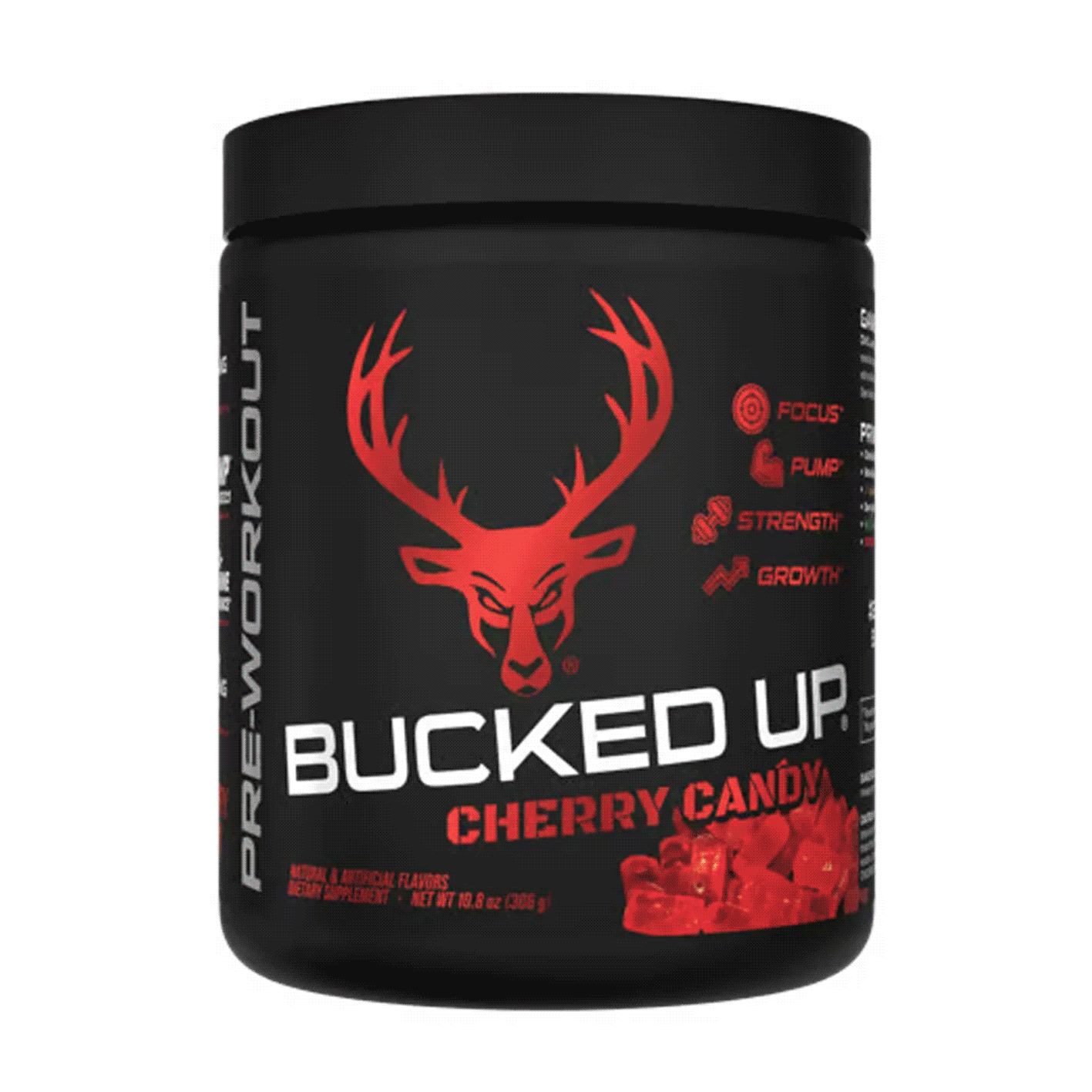Finding the right energy boost can shape your focus, mood, and productivity every day. Tea and coffee are popular caffeine options, but their effects differ in noticeable ways. Let’s break down how tea and coffee caffeine compare, and explore why Bucked Up Energy Drinks deliver a consistent, performance-driven alternative that combines their strengths while addressing their limitations.
Ready to power up? Check out Bucked Up Energy Drinks for a blend of research-supported ingredients designed for lasting energy and improved mental clarity.
How Caffeine Works: Same Compound, Different Impact
Caffeine in tea and coffee is chemically the same, but the experience varies due to other compounds in each drink. The caffeine molecule doesn’t change between sources; differences come from accompanying elements in the beverage. That’s why a cup of coffee hits harder than green tea, even with identical caffeine at play.
Coffee often delivers caffeine more directly, while tea pairs it with natural components that soften its effect. Your liver processes caffeine from both drinks using the CYP1A2 enzyme, though personal differences in this enzyme affect how tolerant or sensitive you are. This explains why some feel jittery with coffee but calm with tea, even at similar caffeine levels.
Coffee Caffeine: Quick, Powerful Energy
Coffee is a go-to for fast energy, waking you up or sharpening focus in minutes. An 8-ounce cup of brewed coffee has 95 to 200 mg of caffeine, while a 1-ounce espresso shot offers about 63 mg; cold brew varies but often packs more per ounce.
That higher dose creates a stronger kick. Coffee provides a quick surge in alertness, though it can also trigger jitters, anxiety, or sleep issues, especially for those more sensitive to stimulants. It’s great for early mornings or urgent tasks needing instant clarity.
Yet, coffee’s strength has downsides. Its higher caffeine amount and rapid effect increase the chance of side effects like nervousness or heart palpitations, depending on personal tolerance. Some also face a crash hours later, feeling drained or needing another cup.
Brewing methods affect caffeine levels too. French press or cold brew often extracts more than drip coffee. Bean type, roast, and grind size add to the unpredictability of each cup’s caffeine content.
Tea Caffeine: Steady, Balanced Focus
Tea brings a milder energy lift, offering consistent focus without coffee’s sharp highs and lows. An 8-ounce cup of black tea contains 25 to 48 mg of caffeine, green tea has 25 to 30 mg, and matcha can reach 60 to 70 mg per serving, depending on how it’s made.
What sets tea apart are its unique components. L-theanine, an amino acid found in tea, encourages relaxation and balances caffeine’s intensity, while boosting attention and reaction speed. Unlike coffee, tea creates a calm yet alert state.
This mix shapes a distinct feeling. Caffeine with L-theanine in tea boosts brain alpha wave activity, tied to focused yet relaxed mental clarity. Many describe it as a smooth energy that avoids tension or anxiety.
Tea’s gentler profile helps too. Thanks to L-theanine, tea often avoids jitters, providing steady alertness with less risk of anxiety or sleep disruption compared to coffee, though sensitive users might still react. It suits those avoiding harsh stimulant effects or needing focus over long stretches.
The slower release adds to its appeal. Caffeine peaks in your system within 30 to 60 minutes from any source, but tea feels milder due to lower doses and L-theanine’s calming influence.
Tea vs. Coffee Caffeine: Key Differences at a Glance
Here’s a quick look at how tea and coffee caffeine stack up based on their main traits.
|
Feature |
Coffee Caffeine |
Tea Caffeine |
|
Caffeine Content (8 oz) |
95-200 mg |
Black: 25-48 mg; Green: 25-30 mg |
|
Onset |
Fast, intense |
Slow, gradual |
|
Energy Pattern |
Sharp boost, possible crash |
Smooth, sustained |
|
Mood Impact |
May increase anxiety |
Supports calm focus |
This breakdown shows why people choose one over the other based on personal needs. Both drinks enhance mood and mental performance, but tea often supports calmer alertness and better focus during demanding tasks. Coffee fits urgent, high-energy moments, while tea shines for prolonged concentration without stress.
Your own body chemistry matters as well. Tea’s lower dose and slower release can suit those with limited caffeine tolerance or slower metabolism, reducing side effects like insomnia.
Why Choose Bucked Up Energy Drinks for Better Results?
Coffee and tea each offer value, but they come with trade-offs. Coffee can cause jitters or crashes, while tea might not pack enough punch for intense needs. Bucked Up Energy Drinks step in with a balanced solution, blending the upsides of both while minimizing negatives.

These drinks use research-supported ingredients for steady energy and sharper mental clarity. Instead of relying only on caffeine, they include nootropics and energy compounds that support both mind and body performance.
What Makes Bucked Up Energy Drinks Different?
Coffee and tea mainly work by blocking drowsiness through caffeine. Bucked Up takes a broader approach with ingredients that target energy, focus, and mood together.
- AlphaSize® sharpens mental focus, offering clearer thinking compared to coffee’s raw boost or tea’s softer effect.
- Dynamine™ adds smooth energy and mood support, avoiding the dips often tied to coffee.
- TeaCrine® sustains energy and focus without jitters, pairing with caffeine for longer, steadier effects.
Which Bucked Up Formula Fits Your Needs?
Bucked Up offers three options to match different energy demands and tolerances.
- Bucked Up Energy (300 mg Caffeine): A high-dose option with AlphaSize®, Dynamine™, and TeaCrine®, ideal for students during exams or professionals handling tough projects.
- LFG Energy (160 mg Caffeine): Built for physical and mental challenges, this suits athletes or tradespeople with a moderate caffeine level plus endurance support.
- Babe Energy (150 mg Natural Caffeine): Made with natural caffeine from InnovaBean® and focus enhancers, it’s tailored for women seeking balanced energy for work or fitness.
Find your fit. Explore Bucked Up Energy Drinks to match your goals and lifestyle.
Consistent Energy Without the Downsides
Bucked Up Energy Drinks aim to combine coffee’s quick lift with tea’s lasting focus, adding extra cognitive and mood benefits. Precise ingredient blends and clear labeling mean you know exactly what you’re getting, unlike the guesswork with brewed coffee or steeped tea. This ensures reliable results every time.
The goal is sustained productivity. By focusing on steady energy and avoiding crashes, these drinks help maintain performance all day.
How to Pick the Right Energy Source for You
Your ideal energy option depends on caffeine tolerance, daily demands, and personal preferences. Here’s how to decide.
- For mild, lasting energy with calm: Tea works well if you prefer a gentle lift or have lower tolerance. Its lower caffeine per serving and L-theanine can ease stimulant effects for sensitive users, though stronger teas might still be too much. Babe Energy offers a similar balanced effect with controlled dosing.
- For fast, strong energy: Coffee provides instant alertness for short, intense focus needs, though jitters or crashes can follow. It boosts motivation and energy, but too much can increase stress or hinder precise tasks.
- For steady focus and performance: Bucked Up Energy Drinks blend immediate energy with sustained clarity, using targeted ingredients to enhance mood and avoid common caffeine pitfalls.
Look at your routine. If you’re downing multiple coffees or chasing extra boosts daily, one serving of a tailored energy drink might deliver better consistency with less overall caffeine.
Long-Term Energy Choices and Health
Your caffeine habits can impact health over time. Moderate coffee and tea intake links to lower risks of heart disease and overall mortality in large studies. Used wisely, caffeine from good sources can fit into a healthy life.
Tolerance and dependency are real factors, though. Coffee’s higher doses can build tolerance faster, pushing you to need more for the same effect. Tea’s softer delivery may slow this, while Bucked Up includes compounds like TeaCrine® to help maintain effectiveness over time.
Long-term benefits also matter. Regular tea use may improve work performance and lower depression risk, likely due to caffeine and L-theanine working together. Bucked Up formulations aim for ongoing cognitive and mood support alongside energy.
Common Questions About Caffeine and Energy
Which Causes More Jitters, Coffee or Tea Caffeine?
Coffee’s higher caffeine content, often 95 to 200 mg per cup, and quicker effect make it more likely to cause jitters or anxiety. Tea, with 25 to 48 mg per cup and L-theanine to balance caffeine, typically offers a calmer lift with fewer side effects. Those sensitive to stimulants often find tea easier to handle.
Does Coffee or Tea Affect Sleep More?
Coffee, with its stronger dose and rapid impact, tends to disrupt sleep more, especially if taken within 6 to 8 hours of bedtime. Tea’s lower caffeine and L-theanine’s relaxing effect make it less likely to interfere, though personal sensitivity and metabolism speed can change this for either drink.
What Are the Long-Term Health Effects of Tea or Coffee Caffeine?
Moderate use of both brings health upsides. Coffee and tea connect to lower risks of heart issues, some cancers, and overall mortality thanks to antioxidants. Coffee supports heart health, while tea may aid brain function and reduce depression risk. Stick to 2 to 4 cups of coffee or 3 to 5 of tea daily for benefits without overdoing it.
How Does Bucked Up Energy Address Caffeine Drawbacks?
Bucked Up Energy Drinks use a mix of ingredients to counter typical caffeine issues. TeaCrine® offers lasting energy without crashes, AlphaSize® boosts mental sharpness, and Dynamine™ supports smooth energy and mood. This approach aims to maximize caffeine’s positives while cutting down on negatives.
What’s Best for Caffeine-Sensitive People?
If caffeine hits you hard, start low. Tea, especially green with 25 to 30 mg per cup, often works due to L-theanine’s calming effect. For a controlled option, Babe Energy provides 150 mg of natural caffeine with focus support. Track how you feel and adjust doses or timing as needed.
Power Up with Bucked Up Energy Drinks
Choosing between tea and coffee caffeine affects your daily focus, mood, and health over time. Coffee offers a fast, strong boost for urgent tasks but risks jitters and crashes. Tea delivers steady, calm energy yet might not suffice for high-intensity needs.
Both have value, but their limits can hold you back. Bucked Up Energy Drinks aim to go further, using targeted ingredients like AlphaSize®, Dynamine™, and TeaCrine® for lasting energy, clear focus, and mood support.
Whether you’re a student, professional, tradesperson, or just need reliable energy, Bucked Up has options to fit. Move past basic caffeine sources. Discover Bucked Up Energy Drinks to fuel your drive with a formula crafted for steady performance and mental clarity.
Disclaimer: These statements have not been evaluated by the Food and Drug Administration. This product is not intended to diagnose, treat, cure, or prevent any disease.




